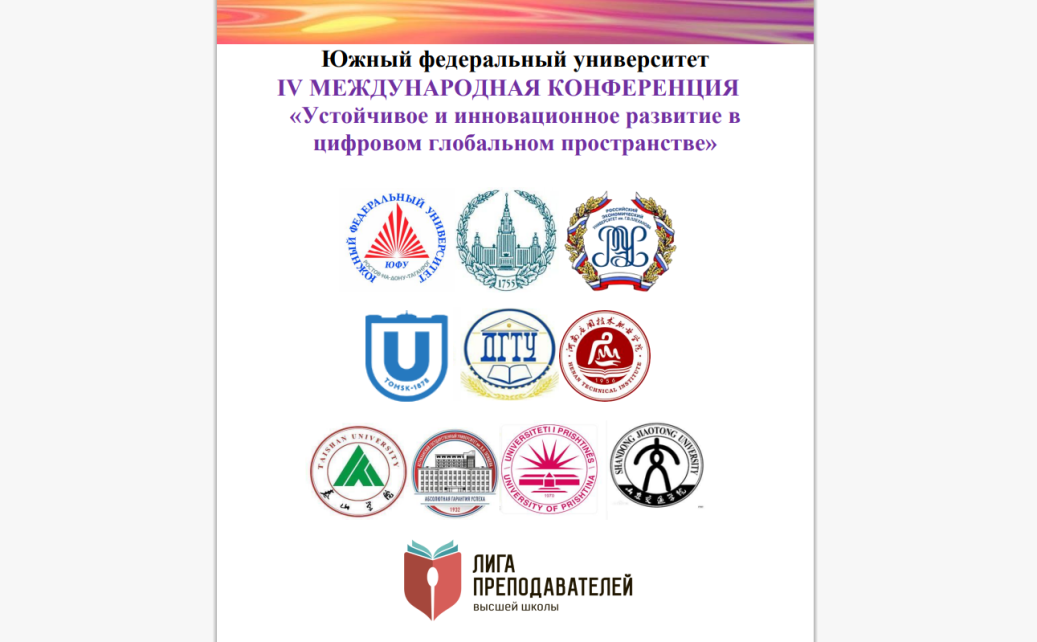
Digital currencies are to influence future financial transactions: IEM experts spoke at international conference
On March 21-23 the IV International Conference ŌĆ£Stady Innovative Development in Global Digital EnvironmentŌĆØ took place at the Southern Federal University. Beside SFU among the organizers were TSU, Plekhanov Russian University of Economics (Moscow), Astrakhan Tatishchev State University, Don State Technical University (Rostov-on-Don), Institute of Serbian Culture (Prishtina), Taishan University (China), Harbin Institute of Finance (China), Henan University of Technology (China), School of Qilu Transportation Shandong University (China). The Vice-President of TSU Georgiy Vladimirovich Mayer was the co-chairman of the conference.
The Institute of Economics and Management was represented on the conference by professors Olga Belomytseva, Marina Ryzhkova and Dmitriy Hloptsov, associate professors Elena Andrienko, Oleg Andrienko and a postgraduate student from China Se Fentsy. Olga Belomytseva was a co-chairman of the section ŌĆ£Finance EconomicsŌĆØ.
Marina Ryzhkova and Se Fentsy presented a report ŌĆ£Digital Currency of the Central Bank and Cash: The Choice Based on Baumol TheoryŌĆØ.
The research described in the report is based on the BaumolŌĆÖs theory of demand for money and includes wide analysis of factors influencing the choice between digital and cash currencies of central banks (CBDC) along with methods of calculation. The analysis results show the decision is usually based on storage costs. Lots of factors facilitate longstanding co-existence of CBDS and cash currencies.
Despite the fact that existing CBDS canŌĆÖt fully replace traditional currencies, it is anticipated that it will have huge influence of future funds transactions, Marina Ryzhkova comments.
IEM experts (Elena Andrienko, Olga Belomytseva, Oleg Andrienko and Dmitriy Hloptsov) presented the report ŌĆ£Economical motivation of eco-development of Russian citiesŌĆØ.
Together with Kasan Federal University (Doctor of Economics Dmitriy Zahmatov) we have formed an authoring team of economists and mathematicians, Olga Belomytseva says. Because the cities face climate change consequences, new ecological requirements, trends for improvement of the quality of life, it is becoming very important to create mechanisms to support the building projects developers. The economic model of a ŌĆ£greenŌĆØ development project typical for a Russian city described in the article shows such mechanisms. The empirical results show that dynamics created by ŌĆ£greenŌĆØ innovations and environmental regulation significantly affect the development projects economy and can either help Russian cities to reach ŌĆ£greenŌĆØ steady development, or impede it due to the costs.
